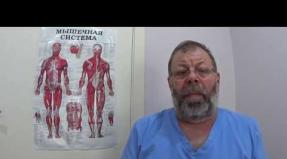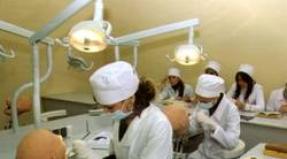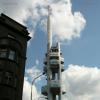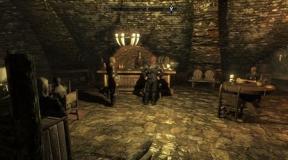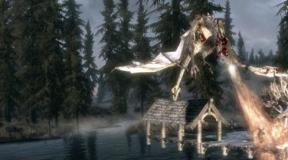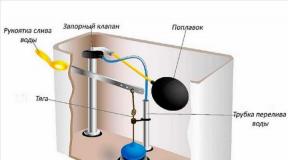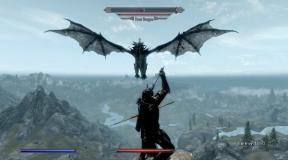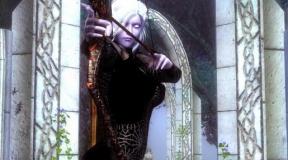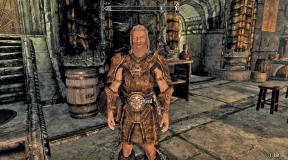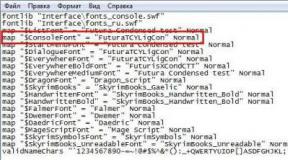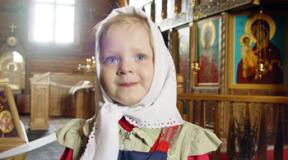Where Denikin fought during the civil war. The beginning of military service. From a military leader to a writer
# military history # history # army history
Commander-in-Chief of the Armed Forces of the South of Russia during the Civil War. Russian lieutenant general.
Anton Ivanovich Denikin was born into the family of a retired border guard major, a former serf peasant in the Saratov province, who was given up as a soldier by a landowner and who participated in three military campaigns. Denikin Sr. rose to the rank of officer - an army ensign, then became a Russian border guard (guard) in the Kingdom of Poland, retiring at 62. There, the retired major's son Anton was born. At the age of 12, he was left without a father, and his mother, with great difficulty, managed to give him an education in the full volume of a real school.
After his graduation, Anton Denikin first entered a rifle regiment as a volunteer, and in the fall of 1890 - in the Kiev infantry cadet school, which he graduated two years later. He began his officer service with the rank of second lieutenant of an artillery brigade near Warsaw. In 1895, Denikin entered the Academy of the General Staff, but studied there surprisingly poorly, being the last in graduation who had the right to be enrolled in the corps of the General Staff.
After the academy, he commanded a company, battalion, served in the headquarters of the infantry and cavalry divisions. At the beginning of the Russo-Japanese War of 1904-1905, Denikin asked to be transferred to the Far East. There he consistently served in staff positions in the brigade of the Zaamur border guard, the Trans-Baikal Cossack division, famous for his forays into the Japanese rear of the cavalry detachment of General Mishchenko. For distinctions in battles with the Japanese, he was promoted to colonel ahead of schedule and appointed chief of staff of the Ural-Transbaikal Cossack Division.
After the end of the Russo-Japanese War, Colonel A.I. Denikin served as chief of staff of the reserve brigade, commander of the 17th Arkhangelsk Infantry Regiment, stationed in the city of Zhitomir. During these years he was often published in the then popular military magazine "Intelligence". The army service of a combat officer was successful largely due to natural talent and zealous service. In June 1914, he was promoted to major general and was appointed general for assignments under the commander of the Kiev military district.
He met the First World War of 1914-1918 in the post of Quartermaster General, that is, the head of the operational service under the commander of the 8th Army, General A.A. Brusilov. Soon he, of his own free will, transferred from headquarters to active units, receiving the command of the 4th rifle brigade, better known in the Russian army as the "Iron Brigade". The brigade received this name for the heroism shown in the last Russian-Turkish war during the liberation of Bulgaria from Ottoman rule.
During the offensive in Galicia, the Denikin brigade of "iron shooters" more than once distinguished itself in matters against the Austro-Hungarians and made its way into the snowy Carpathians. Until the very spring of 1915, stubborn and bloody battles were going on there, for which Major General A.I. Denikin was awarded the honorary St. George weapon and the military order of St. George of the 4th and 3rd degrees. These front-line awards best testified to his abilities as a military leader. Soon his renowned "Iron Brigade" (two rifle regiments) is deployed into the rifle "Iron Division" of the 4-regimental composition.
During the hostilities in the Carpathians, the front-line neighbor of Denikin's "iron shooters" was a division commanded by General L.G. Kornilov, his future ally in the white movement in the south of Russia.
The rank of Lieutenant General A.I. Denikin received for the capture of "iron arrows", who broke through during the offensive operation six lines of enemy defense, strategically important city of Lutsk. At Czartorysk, his division defeated the German 1st East Prussian Infantry Division and captured the Crown Prince's elite 1st Grenadier Regiment. In total, about 6 thousand Germans were captured, 9 guns and 40 machine guns were taken as trophies.
During the famous offensive of the Southwestern Front, which entered the military under the name of the Brusilov breakthrough, Denikin's "Iron Division" again broke into the city of Lutsk. On the approaches to it, the attacking Russian riflemen were opposed by the German "Steel Division".
"A particularly brutal battle broke out at the Zaturtsi ... where the Braunschweig Steel 20th Infantry Division was crushed by our Iron 4th Infantry Division of General Denikin," one of the historians wrote about these battles.
It should be added to this that Denikin's division of "iron shooters" during the First World War took 70 thousand prisoners and captured 49 enemy guns of different caliber as trophies.
In September 1916, General A.I. Denikin was appointed commander of the 8th Army Corps, which at the end of the year, as part of the 9th Army, was transferred to the Romanian Front. Royal Romania, which entered the war on the side of the Entente, was quickly defeated by the Austrians, Bulgarians and Germans, after which its demoralized armies rolled back to the Russian border. There, during the battles with the Austrians near the city of Buseo, two allied Romanian corps were subordinate to the Russian commander.
By that time, Denikin had already gained fame as a talented military leader. One of his contemporaries wrote: “There was not a single operation that he did not win brilliantly, there was not a single battle that he did not win ... There was no case that General Denikin said that his troops were tired, or that he asked help him with reserves ... Before the troops, he behaved simply, without any theatricality. His orders were short, devoid of "words of fire," but strong and clear to execute. He was always calm during battles and was always personally where the situation required his presence, both officers and soldiers loved him ... Denikin always assessed the situation soberly, did not pay attention to trifles and never lost his spirit in an anxious moment, but immediately accepted measures to counter the threat from the enemy. In the worst of circumstances, he was not only calm, but was ready to joke, charging others with his cheerfulness. In his work, he did not like fuss and senseless haste ... "
General Denikin met the February revolution and the abdication of Emperor Nicholas I Romanov from power on the Romanian front. He wrote about those events: "It was my ever-present sincere desire that Russia would come to this through evolution, not revolution."
When General M.V. Alekseev was appointed the Supreme Commander of Russia, Denikin, on the recommendation of the new Minister of War Guchkov and the decision of the Provisional Government, became chief of staff of the Supreme Commander-in-Chief Headquarters (April - May 1917). He took part in the development of operational plans, including the future June offensive; opposed "revolutionary" transformations and "democratization" of the army; tried to limit the functions of the soldiers' committees only to economic issues.
Then Lieutenant General A.I. Denikin consistently held the posts of commander-in-chief of the Western and Southwestern Fronts. After the failure of the July offensive, he openly blamed the Provisional Government and its Prime Minister Kerensky for the collapse of the Russian army. Having become an active participant in the unsuccessful Kornilov rebellion, Denikin, along with the generals and officers loyal to Kornilov, was arrested and imprisoned in the city of Bykhov. After liberation, he arrived in the capital of the Don Cossacks, the city of Novocherkassk, where, together with generals Alekseev and Kornilov, he formed the White Guard Volunteer Army. In December 1917 he was elected a member of the Don Civil Council (Don government), which, according to Denikin, was to become "the first all-Russian anti-Bolshevik government."
Initially, Lieutenant General A.I. Denikin was appointed chief of the Volunteer Division, but after the reorganization of the White Guard troops, he was transferred to the post of assistant to the army commander. He took part in the famous 1st Kuban ("Ice") campaign, sharing with the soldiers all its hardships and hardships. After the death of General L.G. Kornilov on April 13, 1918, during the assault of the Kuban capital of the city of Yekaterinodar, Denikin became commander of the Volunteer Army, and in September of the same year, its commander-in-chief.
The first order of the new commander of the Volunteer Army was an order to withdraw troops from Yekaterinodar back to the Don, with the sole purpose of preserving its personnel. There, the Cossacks, who rose up against Soviet power, joined the White Army.
With the Germans who temporarily occupied the city of Rostov, Lieutenant-General Denikin established relations, which he himself called "armed neutrality", since he fundamentally condemned any foreign intervention against the Russian state. The German command, for its part, also tried not to exacerbate relations with the volunteers.
On the Don, the 1st brigade of Russian volunteers under the command of Colonel Drozdovsky joined the Volunteer Army. Having gained strength and replenished its ranks, the white army went on the offensive and recaptured the line of the Torgovaya - Velikoknyazheskaya railway from the Reds. Together with her, the White Don Cossack Army of General Krasnov was now operating.
After that, the army of Lieutenant General A.I. Denikin began, this time successful, the 2nd Kuban campaign. Soon the entire south of Russia was in the flames of the Civil War. The majority of the Kuban, Don and Tersk Cossacks went over to the side of the white movement. Some of the mountain peoples also joined him. The Circassian Cavalry Division and the Kabardian Cavalry Division appeared in the White Army of the South of Russia. Denikin also subdued the White Cossack Don, Kuban and Caucasian armies (but only in operational terms; the Cossack armies retained a certain autonomy). In January, he became the commander-in-chief of the Armed Forces of the South of Russia. Later, the Ural Cossack Army of General V.S. Tolstoy, the Black Sea Fleet, the Caspian Naval Flotilla, several river military flotillas.
In July 1919, he was appointed Deputy Supreme Ruler of Russia, Admiral A.V. Kolchak and at the same time received the post of Supreme Commander-in-Chief of the Armed Forces of the Russian state, leaving him in the post of Commander-in-Chief of the Armed Forces of the South of Russia. On January 4, 1920 (after the defeat of the Kolchak armies), he was proclaimed the Supreme Ruler of Russia.
According to his political views, A.I. Denikin was a supporter of a bourgeois, parliamentary republic. In April 1919, he turned to representatives of the Allies of Russia in the Entente during the First World War with a declaration defining the goals of the White Volunteer Army:
“1) The destruction of the Bolshevik anarchy and the establishment of legal order in the country.
2) The restoration of a powerful, united and indivisible Russia.
3) Convocation of the National Assembly on the basis of universal suffrage.
4) Conducting decentralization of power by establishing regional autonomy and broad local self-government.
5) Guarantees of full civil liberty and freedom of religion.
6) Immediate start to land reform to eliminate the land needs of the working population.
7) Immediate implementation of labor legislation, ensuring the working classes from their exploitation by the state and capital. "
The capture of the city of Yekaterinodar, the Kuban region and the North Caucasus inspired the soldiers of the Volunteer Army. It was significantly replenished with the Kuban Cossacks and officers. In most of the Stavropol province, mobilization was carried out. Some of the regiments of the old Russian army were recreated under their former names, many prisoners of the Red Army joined the ranks of the White Guard troops.
Now the Volunteer Army numbered 30-35 thousand people, yet it was noticeably inferior to the Don White Cossack Army of General Krasnov. But on January 1, 1919, the Volunteer Army already consisted of 82,600 bayonets and 12,320 sabers. She became the main striking force of the white movement.
A.I. Denikin moved his headquarters of the commander-in-chief, first to Rostov, then to the nearby city of Taganrog. In June 1919, his armies had over 160 thousand bayonets and sabers, about 600 guns, more than 1500 machine guns. With these forces, he launched a broad offensive against Moscow.
Denikin's cavalry with a massive blow broke through the front of the 8th and 9th red armies and united with the insurgent Cossacks of the Upper Don, participants in the Veshensky uprising against Soviet power. A few days earlier, Denikin's troops struck a strong blow at the junction of the Ukrainian and southern enemy fronts and broke through to the north of Donbass.
The White Volunteer, Don and Caucasian armies began a rapid advance northward. During June 1919, they captured the entire Donbass, Don region, Crimea and part of Ukraine. Kharkov and Tsaritsyn (Volgograd) were taken with battles. In the first half of July, the front of Denikin's troops entered the territory of the provinces of the central regions of Soviet Russia.
On July 3, 1919, Lieutenant General A.I. Denikin issued the so-called "Moscow" directive, setting the ultimate goal of the offensive of the White troops to capture Moscow. The situation in mid-July, according to the Soviet high command, assumed the dimensions of a strategic catastrophe. However, the military-political leadership of Soviet Russia, after taking a number of urgent measures, managed to turn the tide of the Civil War in the south in their favor.
During the counterattack of the Red Southern and Southeastern Fronts, Denikin's armies were defeated, and by the beginning of 1920 they were defeated in the Don, the North Caucasus and Ukraine. Denikin himself with part of the white troops retreated to the Crimea, where on April 4 of the same year he handed over the power of the Supreme Commander-in-Chief to General P.N. Wrangel. After that, he and his family sailed to Constantinople (Istanbul) on an English destroyer, then emigrated to France, where he settled in one of the suburbs of Paris. Denikin did not take an active part in the political life of the Russian emigration. In 1939, while remaining a principled enemy of Soviet power, he appealed to the Russian emigres not to support the fascist army in the event of a campaign against the Soviet Union. This appeal had a great public response. During the occupation of France by Nazi troops, Denikin flatly refused to cooperate with them.
In November 1945, fearing that the French authorities would extradite him to the Soviet Union, he left France for permanent residence in the United States and settled in Michigan, where he died two years later.
Anton Ivanovich Denikin entered the Russian military as a renowned military leader of the First World War and as one of the main leaders of the white movement during the Civil War. His activities in late 1917 - early 1920 received a contradictory assessment of historians, but one thing is certain: he was a patriot of Russia and believed in its great destiny.
After himself A.I. Denikin left his memoirs, which were published in Russia in the 1990s: Essays on Russian Troubles, Officers, The Old Army, and The Way of a Russian Officer. In them, he tried to analyze the reasons for the collapse of the Russian army and Russian statehood in the revolutionary year 1917 and the collapse of the white movement during the Civil War.
Alexey Shishov. 100 great generals
We continue our column dedicated to the figures of the Civil War of 1917-1922. Today we will talk about Anton Ivanovich Denikin, perhaps the most famous figure of the so-called "white movement". This article will analyze the personality of Denikin and the white movement in the era of his leadership.
To begin with, here is a brief biographical note. The future white dictator of the South of Russia was born on 4 (16 according to the old style) December 1872 in the village of Spetal Dolny, the Zavlinsky suburb of the city of Wloclawek, in the Warsaw province, which already belonged to the decaying Russian Empire. The father of the future general was a retired major of the border guard, Ivan Denikin, a former serf, and his mother Elizaveta Vrzhesinskaya was from an impoverished Polish family of landowners.
Young Anton wanted to follow the example of his father to make a military career and at the age of 18, after graduating from the Lowichi Real School, he was enrolled as a volunteer in the 1st Infantry Regiment, lived for three months in the barracks in Plock and in June of the same year he was admitted to the Kiev Infantry Junker School for a military school course. After completing this course, Denikin was promoted to second lieutenant and assigned to the 2nd artillery brigade, which was stationed in the county town of Bela, in the Sedlec province of the Polish kingdom.
After several preparatory years, Denikin went to St. Petersburg, where he passed a competitive exam at the Academy of the General Staff, but at the end of the first year he was expelled for failing the exam in the history of military art. After 3 months, he retried the exam and was again admitted to the academy. On the eve of the graduation of young Denikin, the new head of the Academy of the General Staff, General Nikolai Sukhotin, corrected at his own discretion the lists of graduates who were to be assigned to the General Staff and ... Denikin was not included in their number. Anton Ivanovich filed a complaint, but they tried to hush up the case, inviting him to apologize - “ask for mercy,” to which Denikin did not agree and his complaint was rejected for “violent temper”.
After this incident, in 1900, Anton Ivanovich Denikin returned to Bela, to his native 2nd artillery brigade, where he stayed until 1902, when he wrote a letter to Minister of War Kuropatkin, commander-in-chief of the Russian army in the Far East, in order to ask him to consider the old situation. This action was a success - in the summer of 1902 Anton Denikin was enlisted as an officer of the General Staff, and from that moment the career of the future "white general" began. Now let's digress from a detailed biography and talk about his participation in the Russian-Japanese and First World Wars.
In February 1904, Denikin, who had become a captain by this time, achieved a business trip to the active army. Even before arriving in Harbin, he was appointed chief of staff of the 3rd brigade of the Zaamur district of the Separate Border Guard Corps, which stood deep in the rear and clashed with the Chinese robber detachments of the Hunghuz. In September, Denikin received the post of an officer for assignments at the headquarters of the 8th corps of the Manchurian army. Then, on his return to Harbin, he took the rank of lieutenant colonel and was sent to Tsinghechen in the Eastern Detachment, where he accepted the post of Chief of Staff of the Trans-Baikal Cossack Division, General Rennenkampf.
The first "baptism of fire", Denikin received during the Tsinghechen battle on November 19, 1904. One of the hills of the battle area went down in military history under the name "Denikinskaya" for the Japanese offensive repulsed by it with bayonets. After that he took part in enhanced reconnaissance. Then he was appointed chief of staff of the Ural-Transbaikal division of General Mishchenko, where he proved himself to be a capable officer, and already in February-March 1905 he took part in the Mudken battle.
His fruitful work was noticed by the higher authorities and "for the difference in cases against the Japanese" he was promoted to colonel and awarded the Order of St. Stanislaus 3rd degree with swords and bows and St. Anne 2nd degree with swords. After the signing of the Portsmouth Peace Treaty, he left in turmoil back to St. Petersburg.
But the real "test" of his qualities came with the First World War. Denikin met her as part of the headquarters of the 8th Army of General Brusilov, for which the beginning of the war was going well: she continued to advance and soon captured Lvov. After that, Denikin expressed a desire to move from a staff position to a field one, to which Brusilov agreed and transferred him to the 4th rifle brigade, unofficially called "iron" for the feats in the Russian-Turkish war of 1877-78.
Under the leadership of Denikin, she won many victories over the Kaiser and Austro-Hungarian armies and she was re-named "iron". He especially distinguished himself in the battle with Grodek, having received the St. George weapon for this. But, these were only local successes, because the Russian Empire was not ready for war: the collapse of the army was observed everywhere; corruption flourished simply on a titanic scale, from the generals of the main Headquarters to minor military officials; food did not reach the front, there were frequent cases of sabotage. There were also problems with the military-patriotic spirit. The enthusiasm was observed only in the first months of the war, and that, due to the fact that government propaganda widely used the patriotic feelings of the population, but as the situation with the supply and the growth of losses, pacifist sentiments spread more and more.
At the beginning of 1915, the Russian Empire was defeated on all fronts, maintaining a timid balance only on the border with Austria-Hungary, while German troops boldly attacked the western borders of Ingushetia, defeating the armies of Samsonov and Rennenkampf, one of the reasons for which was long-standing rivalry and mutual distrust between these generals.
Denikin at this time went to the aid of Kaledin, with whom he threw the Austrians behind a river called San. At this time, he received an offer to become the chief of a division, but did not want to part with his "eagles" from the brigade, which is why the authorities decided to deploy his brigade into a division.
In September, with a desperate maneuver, Denikin took the city of Lutsk and captured 158 officers and 9773 enemy soldiers, for which he was promoted to lieutenant general. General Brusilov wrote in his memoirs that Denikin, "without excuses for any difficulties," rushed to Lutsk and took it "in one fell swoop", and during the battle he drove into the city by car and from there sent a telegram to Brusilov about the capture of the city division. But, soon, Lutsk had to be left to level the front. After that, a relative calm was established at the front and a period of trench warfare began.
The whole of 1916 for Denikin was spent in constant battles with the enemy. On June 5, 1916, he took Lutsk again, for which he was again awarded the award. In August, he was appointed commander of the 8th corps and, together with the corps, was sent to the Romanian front, where Romania, which had gone over to the side of the Entente, was defeated by the Austrians. In the same place, in Romania, Denikin was awarded the highest military order - the Order of Mihai the Brave, 3rd degree.
So, we come to the most significant period of Denikin's life and the beginning of his involvement in the political game. As you know, in February 1917, the February Revolution takes place and a whole chain of events takes place, as a result of which the tsar is overthrown, and a noisy bourgeoisie, but completely incapable of active actions, rose to power. We have already written about these events in "Politsturm", therefore, we will not deviate from the set topic and return to Denikin.
In March 1917, he was summoned to Petrograd by the Minister of War of the new revolutionary government, Alexander Guchkov, from whom he received an offer to become chief of staff under the newly appointed Supreme Commander of the Russian Army, General Mikhail Alekseev. Denikin accepted this offer and already on April 5, 1917, entered his new position, in which he worked for about a month and a half, having worked well with Alekseev. Then, when Brusilov came to replace Alekseev, Denikin refused to be his chief of staff and on May 31 was transferred to the post of commander of the armies of the Western Front. In the spring of 1917, at the military congress in Mogilev, he was marked by sharp criticism of Kerensky's policy, the essence of which was to democratize the army. At the General Headquarters meeting on July 16, 1917, he advocated the abolition of committees in the army and the withdrawal of politics from the army.
As commander of the Western Front, Denikin provided support for the Southwestern Front. On the way to his new destination in Mogilev, he met with General Kornilov, in a conversation with whom he expressed his consent to participate in the uprising. The February government found out about this and already on August 29, 1917, Denikin was arrested and imprisoned in Berdichev (first of all, for expressing solidarity with General Kornilov with a rather harsh telegram to the Provisional Government). Together with him, the entire leadership of his headquarters was arrested. A month later, Denikin was transferred to Bykhov to an arrested group of generals led by Kornilov, on the way almost becoming a victim of a soldier's lynching.
The investigation into the Kornilov case was delayed due to the lack of imputed evidence of the generals' guilt, so they met the Great October Socialist Revolution while in prison.
The new government temporarily forgets about the generals, and the supreme commander-in-chief Dukhonin, taking advantage of the opportunity, frees them from Bykhov's prison.
At that moment, Denikin changed his appearance and moved to Novocherkassk under the name of "assistant to the head of the dressing unit Alexander Dombrovsky", where he began to take part in the formation of the Volunteer Army and became, in fact, the organizer of the so-called. "volunteer movement" and, accordingly, - and the first anti-Bolshevik movement in Russia. In the same place, in Novocherkassk, he began to form an army, which at first consisted of 1,500 people. In order to get weapons, Denikin's people often had to steal it from the Cossacks. By 1918, the army numbers about 4,000 people. Since then, the number of traffic participants began to grow.
On January 30, 1918, he was appointed commander of the 1st Infantry (Volunteer) Division. After the volunteers suppressed the workers' uprising in Rostov, the army headquarters moved there. Together with the Volunteer Army, on the night of February 8 to February 9, 1918, Denikin took part in the 1st Kuban Campaign, during which he became deputy commander of the Volunteer Army, General Kornilov. He was one of those who suggested to Kornilov to send an army to the Kuban region.
An important moment for the volunteers was the storming of Yekaterinodar. They suffered heavy losses, the ammunition was running out, and on top of that, Kornilov was killed by the shell. Denikin was appointed head of the volunteer army, who rolled off the offensive and withdrew the troops.
After the retreat, Denikin reorganizes the army, increases its number to 8-9 thousand people, receives a sufficient amount of ammunition from allies abroad and begins the so-called. "2nd Kuban Campaign", as a result of which the capital of the Kuban nobility Yekaterinodar was taken, where the headquarters was located. After the death of General Alekseev, the supreme power passes to him. Autumn 1918 - winter 1919 General Denikin's troops conquered Sochi, Adler, Gagra, the entire coastal territory captured by Georgia in the spring of 1918.
On December 22, 1918, the troops of the Southern Front of the Red Army went on the offensive, which caused the collapse of the front of the Don Army. In such conditions, Denikin had a convenient opportunity to subjugate the Don Cossack troops. On December 26, 1918, Denikin signs an agreement with Krasnov, according to which the Volunteer Army is united with the Don Army. This reorganization laid the foundation for the creation of the ARSUR ((Armed Forces of the South of Russia). The ARSUR also included the Caucasian Army and the Black Sea Fleet.
The greatest successes, "Denikinism" reached in 1919. The size of the army was, according to various estimates, about 85 thousand people. In the reports of the Entente for March 1919, conclusions were made about the unpopularity and poor moral and psychological state of Denikin's troops, as well as about the lack of their own resources to continue the struggle. Therefore, Denikin personally develops a military action plan for the spring-summer period. This was the period of the greatest success of the "White Movement". In June 1919, he recognized the supremacy over himself of the "Supreme Ruler of Russia" Admiral Kolchak.
Wide popularity within Soviet Russia came to Denikin in connection with the offensive of his armies in June 1919, when "volunteer troops" took Kharkov (June 24, 1919), and Tsaritsyn (June 30, 1919). The mention of his name in the Soviet press became widespread, and he himself was subjected to the fiercest criticism in it. In July 1919, Vladimir Ilyich Lenin wrote an appeal with the title "All for the fight against Denikin!" On July 3 (16), 1919, Denikin, inspired by the successes of previous campaigns, issued a Moscow directive to his troops providing for the ultimate goal of capturing Moscow, the "heart of Russia" (and at the same time the capital of the Bolshevik state). The troops of the Armed Forces of Yugoslavia under the general leadership of Denikin began their famous "campaign against Moscow."
September and the first half of October 1919 were the time of the greatest success of Denikin's forces in the central direction, in October 1919 they took Oryol, and the forward detachments were on the outskirts of Tula, but on this luck the White Guards stopped smiling.
A special role in this was played by the policy of the "whites" in the controlled territories, which included all kinds of anti-Soviet activities ("fighting the Bolsheviks to the end"), praising the ideals of "United and indivisible Russia", as well as the widespread and harsh restoration of the old landlord order. We add to this that Denikin acted as a person who opposed the creation of national outskirts in every possible way - and this caused discontent on the part of the local population, also, the "white general" assumed the elimination of the Cossacks (his own allies) and pursued a policy of active intervention in the affairs of the Verkhovna Rada.
The peasants, realizing the insignificance of the ideas and designs of the "whites", whose goal was by no means to improve the life of a simple worker, but to restore the old order and oppression, began, if not to enroll en masse in the ranks of the Red Army, then to offer fierce resistance to the "Denikinism" everywhere. By that time, the insurgent army of Makhno inflicted a number of serious blows on the rear of the AFSR, and the troops of the Red Army, creating a quantitative and qualitative superiority over the enemy in the Oryol-Kursk direction (62 thousand bayonets and sabers for the Reds versus 22 thousand for the Whites), in October 1919 G. launched a counteroffensive.
By the end of October, in fierce battles, marching with varying success south of Orel, the troops of the Southern Front (commander A.I. Yegorov) defeated small units of the Volunteer Army, and then began to push them along the entire front line. In the winter of 1919-1920, Denikin's troops left Kharkov, Kiev and Donbass. In March 1920, the retreat of the White Guards ended with the "Novorossiysk catastrophe", when the White troops pressed to the sea were evacuated in panic, and a significant part of them were captured.
Lack of unity within the southern counter-revolution, the heterogeneity of the goals of the struggle; the sharp hostility and heterogeneity of the elements that made up the organism of the white power of the South of Russia; vacillation and confusion in all areas of domestic policy; inability to cope with the issues of establishing industry, trade and foreign relations; complete uncertainty in the land issue - these are the reasons for the complete defeat of Denikin in November - December 1919
Shocked by the defeat, Denikin resigns from the post of commander-in-chief, and Baron Wrangel takes his place, immediately criticizing Denikin's "Moscow Directive". But Wrangel is no longer able to return the previous success to the "white movement", which from that moment is doomed to defeat. On April 4, 1920, General Denikin ingloriously leaves Russia in an English destroyer, never to return to it again.
Anton Ivanovich Denikin (December 4 (16), 1872, Wloclavsk, Russian Empire - August 7, 1947, Ann Arbor, Michigan, USA) - an outstanding Russian military leader, hero of the Russo-Japanese and World War I, Lieutenant General (1916), one of the main leaders (1918 - 1920) of the White movement during the Civil War.
Denikin was born into the family of a Russian officer. His father, Ivan Efimovich Denikin (1807 - 1885), a serf peasant, was recruited by the landowner; after serving in the army for 35 years, he retired in 1869 with the rank of major; was a member of the Crimean, Hungarian and Polish campaigns (suppression of the 1863 uprising). Mother, Elisaveta Feodorovna Vrzhesinskaya, is a Polish national, from a family of impoverished small landowners. Since childhood, Denikin spoke Russian and Polish fluently. The family's financial situation was very modest, and after the death of his father in 1885, it deteriorated sharply. Denikin had to earn money by tutoring.
Denikin dreamed of military service since childhood. In 1890, after graduating from a real school, he went as a volunteer to the army and was soon admitted to the Kiev cadet school (with a military school course). After graduating from college (1892) he served in the artillery troops, and in 1895 he entered the Academy of the General Staff (graduated in 1899).
He received his first combat experience in the Russo-Japanese War. The head of the headquarters of the Transbaikal Cossack division, and then the famous Ural-Transbaikal division, General Mishchenko, famous for daring raids on the rear of the enemy. In the Tsinkhechensky battle, one of the hills went down in military history under the name of Denikin.
At the time of the outbreak of the First World War, Major General Denikin served in the headquarters of the Kiev Military District. In August 1914, he took part in the operations of the 8th Army as Quartermaster General, and soon sought a transfer from the headquarters to the ranks. Since September 1914, he has been in command of the famous "Iron" 4th Rifle Brigade (later a division), which fought valiantly in the most difficult sectors of the front. Member of the "Brusilov Breakthrough" in 1916.
For successful operations and personal heroism, he was awarded the St. George Arms, the Orders of St. George 4th and 3rd degrees and the Golden St. George Weapon with diamonds. In 1916 he was appointed to command the 8th corps on the Romanian front, where in fact he commanded the Romanian troops, having earned the highest order of this country - St. Michael.
In April - May 1917 Denikin was the chief of staff of the Supreme Commander-in-Chief, then the Commander-in-Chief of the Western and Southwestern Fronts.
On August 28, 1917, he was arrested for expressing solidarity with General Kornilov with a sharp telegram to the Provisional Government. Together with Kornilov, he was held in Bykhov prison on charges of mutiny (the so-called "Kornilov mutiny"). Kornilov and the officers arrested with him demanded an open trial in order to cleanse themselves of slander and express their program to Russia.
After the fall of the Provisional Government, the accusation of rebellion lost its meaning, and on November 19 (December 2), 1917, the Supreme Commander-in-Chief Dukhonin ordered the transfer of those arrested to the Don, but the All-Army Committee opposed this. Upon learning of the approach of echelons with revolutionary sailors, threatening lynching, the generals decided to flee.
With a certificate in the name of "assistant chief of the dressing detachment Alexander Dombrovsky" Denikin made his way to Novocherkassk, where he took part in the creation of the Volunteer Army, leading the 1st division during the 1st (Ice) Kuban campaign, and after the death of Kornilov on April 13, 1918 - the whole army. He managed to withdraw from Yekaterinodar to the south of the Don region, the army that had suffered heavy losses, avoiding encirclement and defeat. There, thanks to the fact that the Don Cossacks rose up for an armed struggle against the Bolsheviks, he was able to give the troops a rest and replenish them through the influx of new volunteers - officers and Kuban Cossacks. On the night of June 22-23, 1918, the Volunteer Army under com. AI Denikina began her 2nd Kuban campaign, which ended on August 17 with the capture of Yekaterinodar.
In January 1919, the commander-in-chief of the Armed Forces of the South of Russia, General A.I.Denikin, transferred his Headquarters to Taganrog.
On January 8, 1919, the Volunteer Army became part of the Armed Forces of the South of Russia (V.S.Yu.R.), becoming their main striking force, and General Denikin headed V.S. as "the Supreme Ruler of the Russian state and the Supreme Commander-in-Chief of the Russian armies."
By the beginning of 1919, Denikin managed to suppress the Bolshevik resistance in the North Caucasus, subjugate the Cossack troops of the Don and Kuban, removing the pro-German-oriented general Krasnov from the leadership of the Don Cossacks, receive a large amount of weapons, ammunition, equipment through the Black Sea ports from Russia's allies in the Entente, and in July 1919 to begin a large-scale campaign against Moscow. On July 9, the Bolsheviks proclaimed the slogan "All for the fight against Denikin!"
September and the first half of October 1919 were the times of the greatest success of the anti-Bolshevik forces. By October, the successfully advancing troops of Denikin occupied the Donbass and a vast area from Tsaritsyn to Kiev and Odessa. On October 6, Denikin's troops occupied Voronezh, on October 13 - Oryol and threatened Tula. The Bolsheviks were close to disaster and were preparing to go underground. An underground Moscow Party Committee was created, and government agencies began evacuating to Vologda.
From mid-October 1919, the position of the White armies in the South deteriorated markedly. The rear was destroyed by the Makhnovist raid across Ukraine, besides, troops had to be withdrawn from the front against Makhno, and the Bolsheviks concluded an armistice with the Poles and the Petliurists, freeing up their forces to fight Denikin. Having created a quantitative and qualitative superiority over the enemy in the main, Oryol-Kursk, direction (62 thousand bayonets and sabers for the Reds versus 22 thousand for the Whites), in October the Red Army launched a counteroffensive.
In fierce battles, marching with varying success, to the south of Orel, small units of the Volunteer Army by the end of October, the troops of the Southern Front (commander V. Yegorov) of the Reds defeated them, and then began to push them along the entire front line. In the winter of 1919-1920, Denikin's troops left Kharkov, Kiev, Donbass, Rostov-on-Don. In February-March 1920, a defeat followed in the battle for the Kuban, as a result of the disintegration of the Kuban army (because of its separatism - the most unstable part of the V. S. Yu. R.). After that, the Cossack units of the Kuban armies disintegrated completely and began to surrender en masse to the Reds or go over to the side of the "greens", which entailed the collapse of the White front, the retreat of the remnants of the White Army to Novorossiysk, and from there on March 26-27, 1920, the withdrawal by sea to Crimea.
After the death of the former Supreme Ruler of Russia, Admiral Kolchak, all-Russian power was to pass to General Denikin. However, Denikin, given the difficult military-political position of the whites, did not officially accept these powers. After the defeat of his troops with an intensification of opposition sentiments among the white movement, Denikin left the post of Commander-in-Chief of V.S.
In the territories controlled by the Armed Forces of the South of Russia, all power belonged to Denikin, as commander-in-chief. Under him, there was a "Special Conference" that performed the functions of the executive and legislative branches. Possessing essentially dictatorial power and being a supporter of the constitutional monarchy, Denikin did not consider himself entitled (before the convocation of the Constituent Assembly) to predetermine the future state structure of Russia. He tried to rally the widest possible strata of the White movement under the slogans "Fight against Bolshevism to the end", "Great, United and Indivisible", "Political Freedoms". This position was the object of criticism both from the right, from the monarchists, and from the left, from the liberal camp. The call for the restoration of a single and indivisible Russia met with resistance from the Cossack state formations of the Don and Kuban, who were seeking autonomy and a federal structure for the future Russia, and could not be supported by the nationalist parties of Ukraine, the Transcaucasus, and the Baltic states.
At the same time, in the rear of the whites, attempts were made to establish a normal life. Where the situation permitted, the work of factories and factories, railway and water transport was resumed, banks were opened and daily trade was conducted. Fixed prices for agricultural products were established, a law was passed on criminal liability for speculation, the courts, the prosecutor's office and the legal profession were restored in their previous form, city government bodies were elected, many political parties, including the Socialist-Revolutionaries and Social Democrats, operated freely, the press came out almost without restrictions. The Denikin Special Meeting adopted progressive labor legislation with an 8-hour working day and labor protection measures, which, however, did not find practical implementation.
The Denikin government did not have time to fully implement the land reform it had developed, which was to be based on the strengthening of small and medium-sized farms at the expense of state and landlord lands. A temporary Kolchak law was in force, prescribing, until the Constituent Assembly, the preservation of land for those owners in whose hands it was actually located. The violent seizure of their lands by the former owners was sharply suppressed. Nevertheless, such incidents did occur, which, combined with looting in the front-line zone, pushed the peasantry away from the white camp.
A. Denikin's position on the language issue in Ukraine was expressed in the manifesto "To the Population of Little Russia" (1919): “I declare Russian as the state language throughout Russia, but I consider it completely unacceptable and prohibit the persecution of the Little Russian language. Everyone can speak Little Russian in local offices, zemstvos, public offices and in court. Private-funded local schools can teach in any language. In state schools ... lessons of the Little Russian national language can be established ... Equally, there will be no restrictions on the Little Russian language in print ... ".
Denikin stayed in England for only a few months. In the fall of 1920, together with his family, he left her, making sure that Great Britain took a course towards recognizing Soviet Russia and refusing to support the white movement. From 1920 to 1922 he lived in Belgium, then - in Hungary, and from 1926 - in France. He was engaged in literary activity, gave lectures on the international situation, published the newspaper "Volunteer". Remaining a staunch opponent of the Soviet system, he called on the emigrants not to support Germany in the war with the USSR (the slogan "Defense of Russia and the overthrow of Bolshevism"). After the occupation of France by Germany, he categorically rejected the Nazis' proposals for cooperation and moving to Berlin.
The strengthening of the Soviet influence in European countries after World War II forced A. I. Denikin to move to the United States in 1945, where he continued to work on the book "The Way of the Russian Officer" and made public reports. In January 1946, Denikin appealed to the general with an appeal to stop the forced extradition of former Russian subjects to the USSR.
He died in 1947 of a heart attack. Before his death, he bequeathed that his remains be transported to his homeland when Russia becomes free.
On October 2, 2005, the ashes of General Denikin and his wife were transported to Moscow for burial in the Svyato-Don Monastery. The reburial was carried out at the request of Denikin's daughter, Marina, and at the direction of the Russian President.
Denikin
Works by Anton Ivanovich Denikin:
1. Essays on Russian Troubles, in 5 vols., Paris, 1921-1923
2. The old army. 1929
3. Officers. 1931
4. The Way of a Russian Officer, 1953.
Life under the Whites - Denikin
Russian military leader, lieutenant general (1915). Member of the Civil War of 1918-1920, one of the leaders of the white movement. Commander of the Volunteer Army (1918-1919), Commander-in-Chief of the Armed Forces of the South of Russia (1919-1920).
Anton Ivanovich Denikin was born on December 4 (16), 1872 in the village of Spetal Dolny, a suburb of Wloclawek, a district town in the Warsaw province (now in Poland), in the family of Ivan Efimovich Denikin (1807-1885), a retired border guard major.
In 1890 A. I. Denikin graduated from the Lowichi Real School. In 1890-1892 he studied at the Kiev infantry cadet school, after which he was promoted to second lieutenant and assigned to the 2nd field artillery brigade.
In 1895-1899 A.I. Denikin studied at the Nikolaev Academy of the General Staff. Was enlisted as an officer of the General Staff in 1902.
With the beginning of the Russo-Japanese War of 1904-1905, A. I. Denikin obtained permission to be sent to the active army. He participated in battles and reconnaissance operations, in February-March 1905 he became a participant in the Mukden battle. For distinction in matters against the enemy, he was promoted to colonel and awarded the Order of St. Stanislaus, 2nd degree with swords, and St. Anna, 2nd degree, with swords.
In 1906, A. I. Denikin served as a staff officer for special assignments at the headquarters of the 2nd Cavalry Corps in Warsaw, in 1907-1910 he was chief of staff of the 57th Infantry Reserve Brigade in.
In 1910-1914 A.I.Denikin commanded the 17th Arkhangelsk Infantry Regiment in Zhitomir (now in Ukraine). In March 1914, he was appointed acting general for assignments under the Commander of the Kiev Military District. On the eve of the outbreak of the First World War, A. I. Denikin was promoted to major general and approved as quartermaster general of the 8th Army, General A. A. Brusilov.
In September 1914, A. I. Denikin was appointed commander of the 4th rifle ("Iron") brigade, which in 1915 was deployed into a division. For the battle at Grodek in September 1914, he was awarded the honorary St. George weapon, for the capture of the village of Gorny Luzhok, where the headquarters of the Austrian Archduke Joseph was located - the Order of St. George, 4th degree. AI Denikin took part in battles in Galicia and in the Carpathian Mountains. For the battles on the San River he was awarded the Order of St. George, 3rd degree. Twice (in September 1915 and in June 1916) the troops under his command captured the city of Lutsk. For the first operation, he was promoted to lieutenant general, for the second, he was re-awarded the honorary St.George weapon with diamonds.
In September 1916, A.I.Denikin became the commander of the 8th Army Corps on the Romanian Front. From September 1916 to April 1917 he was the chief of staff of the Supreme Commander-in-Chief, in April-May 1917 he commanded the Western Front, in August 1917 he became the commander of the troops of the South-Western Front.
For supporting the rebellion of General A.I.Denikin was imprisoned in the city of Bykhov. In November 1917, together with other generals, he fled to the Don, where he took part in the creation of the Volunteer Army. From December 1917 to April 1918, A.I. Denikin was the chief of staff of the Volunteer Army, after his death he took command over it, in September 1918 he became the Commander-in-Chief of the Volunteer Army, and from December 1918 to March 1920 he was the Commander-in-Chief of the Armed Forces of the South. In May 1919, A. I. Denikin recognized the power of the Supreme Ruler, the admiral, and from June 1919 he was considered the Deputy of the Supreme Ruler. After resigning from power in January 1920, he was declared the admiral's successor as Supreme Ruler.
After the retreat of the White armies in the fall of 1919 - in the winter of 1920 and the catastrophic evacuation from A.I. Denikin, he was forced to transfer command of the Armed Forces of the South to Baron P.N. Wrangel. In April 1920, he left the Crimea in exile on an English destroyer. Until August 1920, A. I. Denikin lived in England, in 1920-1922 - in Belgium, in 1922-1926 - in Hungary, in 1926-1945 - in France. In November 1945 he moved to the United States. During the years of emigration, A. I. Denikin published memoirs, works on the history of the Russian army and the Russo-Japanese war of 1904-1905. The most famous were his five-volume work "Essays on the Russian Troubles" (1921-1923) and the book of memoirs "The Way of the Russian Officer" (1953).
A.I.Denikin died on August 8, 1947 at the Ann Arbor University Hospital of Michigan (USA). Originally buried in Detroit, in 1952 his remains were transferred to the Orthodox Cossack St. Vladimir's Cemetery in Kesville, New Jersey. In 2005, the remains of A.I.Denikin were transported to and reburied at the cemetery of the Donskoy Monastery.
DENIKIN Anton Ivanovich(1872-1947), Russian military leader, lieutenant general (1916). During the First World War, he commanded a rifle brigade and a division, an army corps; from April 1918 commander, from October commander-in-chief of the Volunteer Army, from January 1919 commander-in-chief of the "Armed Forces of the South of Russia" (Volunteer Army, Don and Caucasian Cossack armies, Turkestan army, Black Sea Fleet); simultaneously from January 1920 "The Supreme Ruler of the Russian State". Since April 1920 in exile. Works on the history of the Russian-Japanese war; memoirs: "Essays on the Russian Troubles" (v. 1-5, 1921-23), "The Way of the Russian Officer" (1953).
DENIKIN Anton Ivanovich(December 4, 1872, the village of Shpetal-Dolny, Wloclawsk, Warsaw province - August 7, 1947, Ann Arbor, USA), Russian military leader, one of the leaders of the white movement, publicist and memoirist, lieutenant general (1916).
The beginning of a military career
Father, Ivan Efimovich Denikin (1807-1855), came from serfs. In 1834 he was recruited by a landowner. In 1856 he passed the exam for an officer's rank (he was promoted to ensign). In 1869 he retired with the rank of major. Mother, Elizaveta Fedorovna, née Vrzhesinskaya (1843-1916), Polish by nationality, came from a family of small landowners.
He graduated from the Lovichi real school, the military school course of the Kiev infantry cadet school (1892) and the Imperial Nikolaev Academy of the General Staff (1899). He served in the 2nd Field Artillery Brigade (1892-95 and 1900-02), was a senior aide-de-camp of the 2nd Infantry Division (1902-03) and the 2nd Cavalry Corps (1903-04). During the Russo-Japanese War in March 1904, he submitted a report on transfer to the active army and was appointed a staff officer for special assignments at the headquarters of the 8th Army Corps; in the theater of military operations he held the post of chief of staff of the Transbaikal Cossack, then the Ural-Transbaikal division, in August 1905 he became chief of staff of the Consolidated Cavalry Corps (at the same time he was promoted to the rank of colonel "for military distinctions"). Decorated with the orders of St. Stanislav and St. Anna 3rd degree with swords and bows and 2nd degree with swords.
In 1906-10 - in various staff positions in the General Staff; in 1910-14 - commander of the 17th Arkhangelsk Infantry Regiment. In March 1914 he was appointed acting general for instructions from the headquarters of the Kiev military district, in June he was promoted to major general.
Back in the 1890s, Denikin's political outlook was formed: he perceived Russian liberalism "in its ideological essence, without any party dogmatism", dividing its three positions: "constitutional monarchy, radical reforms and peaceful ways of renovating Russia." From the end of the 1890s under the pseudonym Ivan Nochin published a lot in the military press, mainly in the most popular magazine "Razvedchik", in which in 1908-14 he published a series of articles "Army Notes". He advocated the improvement of the system of selection and training of command personnel, against bureaucracy, suppression of initiative, rudeness and arbitrariness in relation to the soldiers; he devoted a number of articles to the analysis of the battles of the Russo-Japanese War, in which he personally participated. He pointed to the German and Austrian threat, in the light of which he considered it necessary to carry out early reforms in the army; in 1910 he proposed to convene a congress of officers of the General Staff to discuss the problems of the army; wrote about the need to develop vehicles and military aviation.
During the First World War
Having learned about the beginning of the war, Denikin filed a report with a request to send him to the ranks. In September 1914 he was appointed commander of the 4th brigade of the Iron Riflemen. The "iron arrows" distinguished themselves in many battles of 1914-16, they were thrown into the most difficult areas; they got the nickname "fire brigade". For distinction in battles, Denikin was awarded the St.George weapon, the Order of St. George 4th and 3rd degrees. For the breakthrough of enemy positions during the offensive of the Southwestern Front in 1916 and the capture of Lutsk, he was again awarded the Georgievsky weapon, decorated with diamonds and promoted to lieutenant general. In September 1916 he was appointed commander of the 8th Army Corps.
February revolution
Denikin's military career continued to advance even after the February Revolution. In April 1917 he was appointed chief of staff of the Supreme Commander-in-Chief, then in May - Commander-in-Chief of the armies of the Western Front, in July - Chief of the armies of the South-Western Front. He sharply criticized the policy of the Provisional Government, leading to the collapse of the army, at the officers' congress in May 1917. At a meeting at Headquarters on July 16, in the presence of members of the Provisional Government, he made a speech in which he formulated an 8-point program for strengthening the army, which actually contained a demand abolition of democratic gains in the army. On August 27, 1917, having received news of the speech of General L.G. Kornilov, he sent a telegram to the Provisional Government in support of its demands - to bring the war to a victorious end and to convene the Constituent Assembly. On August 29, he was arrested and placed in a guardhouse in Berdichev, then transferred to Bykhov, where Kornilov and his associates were imprisoned. November 19, 1917, by order of the Supreme Commander-in-Chief, General N. N. Dukhonin, was released from arrest, like some others arrested in the Kornilov case; with documents in a false name made his way to the Don.
At the head of the Volunteer Army
In late autumn 1917 he arrived in Novocherkassk, where he took part in the organization and formation of the Volunteer Army. He strove to smooth over the differences between generals M.V. Alekseev and Kornilov, initiated the division of powers between them, as well as the Don ataman A.M. Kaledin. On January 30, 1918, he was appointed chief of the 1st Volunteer Division. In the 1st Kuban ("Ice") campaign - deputy commander of the Volunteer Army, General Kornilov. On March 31 (April 13) 1918, after the death of Kornilov near Yekaterinodar, he assumed command of the Dobrarmia. He abandoned the plan of Kornilov to storm Yekaterinodar, considering it suicidal, which made it possible to save the army. In June 1918 he undertook the 2nd Kuban campaign, during which Yekaterinodar was taken on July 3, 1918. September 25 (October 8) 1918, after the death of General Alekseev, became the Commander-in-Chief of the Good Army. Since January 1919, after the consent of the Don Ataman, General P. N. Krasnov, to create a unified command and subordination of the Don Army to Denikin, he became Commander-in-Chief of the Armed Forces of the South of Russia (AFYUR). Not wishing to split the anti-Bolshevik movement, in May 1919 he recognized Admiral A. V. Kolchak as the "supreme ruler" of Russia; in January 1920, the powers of "supreme ruler" were transferred to Admiral Denikin.
The greatest successes of Denikin's troops fell on the summer - early autumn of 1919. On June 20, in the newly captured Tsaritsyn, Denikin signed the "Moscow Directive" - on the attack on Moscow. However, the general did not take into account the peculiarities of the civil war, as well as the specifics of the regions where his troops were mainly deployed. Denikin failed to put forward an attractive program, focusing on the doctrine of "non-prescription" (refusal to decide on the form of state structure before the expulsion of the Bolsheviks), the agrarian reform program was not worked out. The whites failed to organize the work of the rear, in which speculation and corruption flourished, and the army's supply system, which led to "self-supply" and a drop in discipline, the army degenerated into a gang of robbers and pogromists, which was especially pronounced in Ukraine, where the whites carried out Jewish pogroms ... Denikin was accused of a strategic miscalculation - the "campaign against Moscow" led to the fact that the front was stretched out, supply was difficult, the whites occupied vast territories that they were unable to hold. The attack on Moscow in two directions led to a dispersion of forces and made the troops extremely vulnerable to counter-attacks by the Reds. In response to these accusations, Denikin reasonably pointed out that civil war has special laws and it is impossible to approach operations only from the point of view of military strategy. But the Denikinites undoubtedly achieved great successes in comparison with other anti-Bolshevik fronts; in October 1919, they took Orel, and their vanguard detachments were on the outskirts of Tula.
However, the offensive was choked, Denikin was forced to retreat rapidly. In March 1920, the retreat ended with the "Novorossiysk catastrophe." When the white troops pressed to the sea were evacuated in panic, and a significant part of them were captured. Shocked by the disaster, Denikin resigned and after April 4, 1920 transferred command to General P.N. Wrangel, left Russia forever.
In emigration
In Europe, Denikin experienced all the hardships associated with his forced emigration. First, in the spring of 1920, he ended up in Constantinople, soon found himself in London, in August he left for Brussels. Being extremely scrupulous in financial matters, Denikin did not provide himself with a livelihood; primarily due to material circumstances, his family moved to Hungary in June 1922, eventually settling in a place near Lake Balaton (it was in Hungary that his most famous book "Essays on Russian Troubles", 1921-1926 was written). In 1925 the Denikins returned to Brussels, in 1926 they moved to Paris.
Essays on Russian Troubles, which were already published in Paris, combined elements of memoir and research. Denikin relied not only on the memory and materials of his archive; at his request, various documents were sent to him, members of the white movement put their unpublished memoirs at his disposal. "Essays" to this day are the most complete and valuable source on the history of the white movement in southern Russia; are read with increasing interest and are written in expressive Russian.
His books The Officers (1928) and The Old Army (1929) were also published in Paris.
Literary earnings and lecture fees were his only means of subsistence. In the 1930s, amid a growing military threat, he wrote and lectured a lot on problems of international relations; took an anti-Nazi position, which in no way meant his reconciliation with the Soviet regime. He published in Paris books and brochures "The Russian Question in the Far East" (1932), "Brest-Litovsk" (1933), "Who saved the Soviet power from destruction?" (1937), "World events and the Russian question" (1939). In 1936-38 he was published in the newspaper "Volunteer" and some other Russian-language publications. After the surrender of France in June 1940, the Denikins moved to the south of France in the town of Mimizan, near Bordeaux. The former general was very upset by the defeat of the Red Army and rejoiced at its victories, however, unlike many emigrants, he did not believe in the degeneration of Soviet power.
In May 1945 he returned to Paris, but, fearing forcible deportation to the USSR, six months later he left for the United States. In May 1946 he wrote in a private letter: "The Soviets are bringing a terrible calamity to the peoples, striving for world domination. Their impudent, provocative, threatening former allies, raising a wave of hatred, their policy threatens to turn to dust everything that has been achieved by the patriotic enthusiasm and blood of the Russian people." In the United States, he continued to work on memories that he began in France. Died of a heart attack. Buried with military honors at Evergreen Cemetery (Detroit); On December 15, 1952, Denikin's ashes were transferred to the Russian cemetery of St. Vladimir in Jackson, New Jersey.
Denikin's archive is kept in the library of the Institute for the Study of Russian and Eastern European History and Culture at Columbia University in New York.
